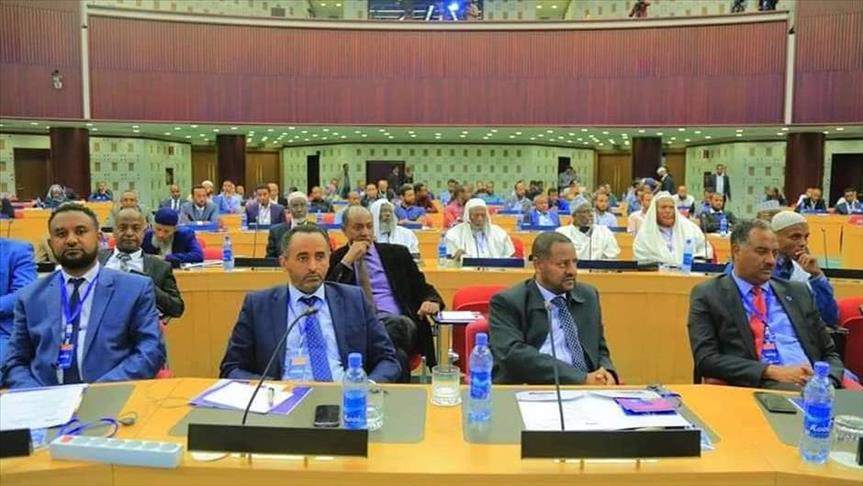
By Sadik Kedir Abdu and Addis Getachew
ANKARA / ADDIS ABABA, Ethiopia
Despite making up over 30 percent of Ethiopia's population, Muslims’ wish to have an interest-free banking system has long been ignored, forcing believers into conventional banking, which many see as sinful.
"It is a paradox that there is 40 percent demand for interest-free banking in Ethiopia, but interest-free banking is nowhere to meet that demand,” says Abdulkadir Wahab Aman, who earned a doctorate in economics from Istanbul's Yildiz Technical University, speaking at a summit on interest-free banking Saturday at the Economic Commission For Africa in Ethiopia’s capital, Addis Ababa.
“There is a huge demand in the country for interest-free banking, which has not been addressed adequately to date,” said Ahbabu Abdella Yassin, director of the ExploreMore Institute of Management and Finance, a consulting company which organized the event in partnership with the Addis Ababa Chamber of Commerce.
Religious leaders, activists, academics, and businesspeople attended the summit, which explored ways of institutionalizing interest-free banking -- also called participation banking -- to meet the unmet demand.
“Inhibitive policies and a weak legal framework constrain the expansion of interest-free banking in the country,” Yassin told Anadolu Agency.
“Ethiopia is not a member of the Islamic Development Bank and so is missing out from benefiting from the huge amount of revolving funds it earmarks for investments and loans,” he said, adding the Islamic banking is not meant to replace regular banking but offer an alternative.
He also said the idea that Islamic banking is only for Muslims is a myth.
"Not only the legal framework but also awareness of the system and the understanding of how it would integrate itself with the conventional banking is at question," said Abdurrahman Jemal, a researcher at the Center For Islamic Economics and Finance in Qatar's capital Doha, adding that most banks in Ethiopia lack values-based intermediation.
According to him, values-based banks can attain their hoped-for economic, social, and environmental development by providing their products and services using a values-based banking approach.
Turkish banking 'best model' for Ethiopia
Jemal also stressed that Ethiopian bank policymakers need to learn more from countries like Turkey, who have integrated interest-free banking in their financial system, to develop the necessary legal and regulatory framework in the country.
In 2012, he said, the Ethiopian government shut down the interest-free Zamzam Bank due to incompatibility with the country's financial demography.
"However, now is the time to modify Ethiopia's banking system and integrate a policy that would facilitate interest-free banking since Ethiopia has shown an astonishing move towards inclusive political and economic reforms in recent months," he stressed.
For experts like Suadiq Mehammed Hailu, a doctoral candidate in finance at Cukurova University in Adana, Turkey, the end of Zamzam bank points to challenges like the lack of professionals in the area of interest-free banking.
"The demand was very high, and shares of the bank were sold swiftly, helping the bank raise funds of nearly $6 million, nearly a double of the paid-up capital to establish a bank. But as for professionals, there might have been some gaps," he said.
The bank’s fate should have been “decided by shareholders, not the government though," he stressed.
The summit saw research papers presented on topics such as operational and regulatory challenges to interest-free banking in Ethiopia, among others.
Anadolu Agency website contains only a portion of the news stories offered to subscribers in the AA News Broadcasting System (HAS), and in summarized form. Please contact us for subscription options.



